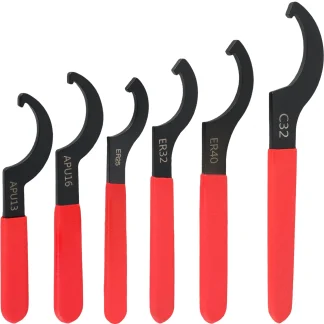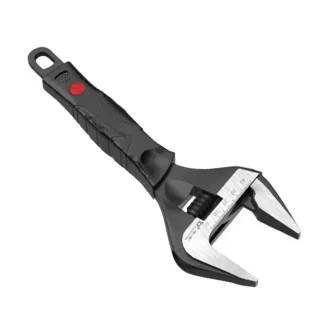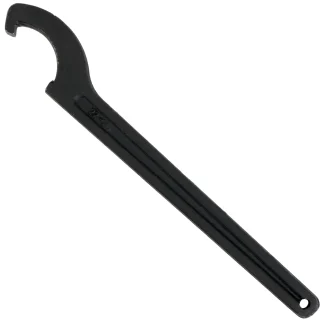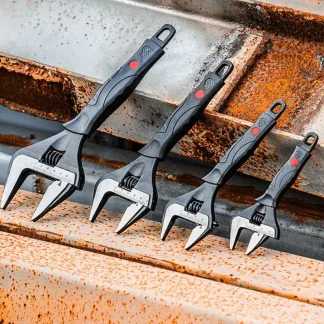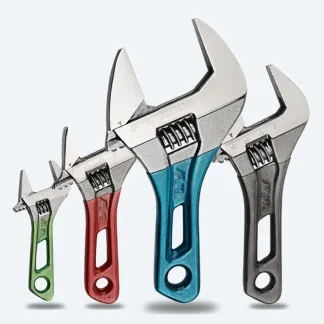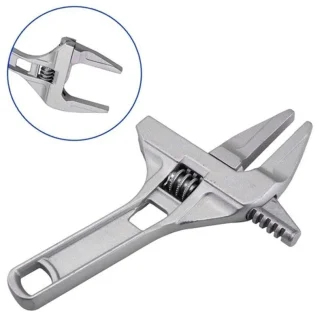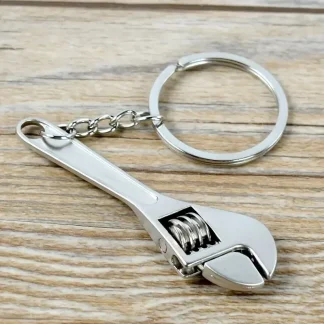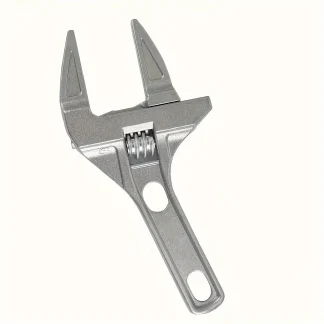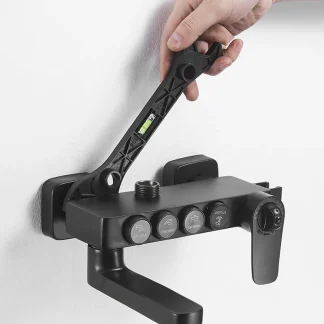The Versatile Tool: Understanding the Crescent Wrench
Dive into the world of the crescent wrench, an essential tool that blends functionality and versatility in one sleek design. Often referred to as an adjustable spanner, these products are renowned for its ability to grip various sizes of nuts and bolts with ease. Whether you're a professional tradesperson or a DIY enthusiast, this tool is a must-have for any toolbox, capable of adapting to a range of tasks and projects.
A Brief History of the Crescent Wrench
These items have a fascinating history that dates back to the late 19th century. The first adjustable item was patented in 1892 by the American inventor, Daniel Stillson, who introduced a design that allowed users to adjust the jaw's width to accommodate different sizes of fasteners. This innovation marked a significant step in tool evolution, providing a more versatile alternative to traditional fixed pieces.
These items we commonly refer to as the "crescent wrench" was popularized by the Tool Company, founded in 1907. The company's name became synonymous with adjustable pieces, and their design quickly became the standard in the industry. By the early 20th century, these items was a staple in every mechanic's toolbox, revolutionizing how tasks were approached in workshops and on construction sites.
Over the decades, these products have undergone several refinements, enhancing its functionality and durability. Today, it remains one of the most widely used tools in various industries, proving that its design withstands the test of time.
Cultural Significance of the Crescent Wrench
The crescent wrench holds cultural significance beyond its practicality; it embodies the spirit of ingenuity and resourcefulness. In many trades, it represents the do-it-yourself ethos, encouraging individuals to tackle projects with confidence and skill. This tool has become an icon of craftsmanship, symbolizing the blend of tradition and innovation that characterizes the world of mechanics and engineering.
In popular culture, these items often appears in media and literature as a symbol of the working-class hero. It evokes a sense of reliability and practicality, illustrating the importance of tools in daily life. From the garages of small-town mechanics to the workshops of skilled artisans, these products are a familiar sight, appreciated for its simplicity and efficiency.
Design Features of the Crescent Wrench
The crescent wrench is celebrated for its unique design and functional features. It typically consists of a long handle for leverage, an adjustable jaw for gripping various sizes, and a flat gripping surface that allows for maximum contact with nuts and bolts. These characteristics enable these items to deliver significant torque, making it an effective tool for loosening or tightening fasteners.
One of the standout features of these products are its adjustable jaw, which can be easily modified using a thumb screw or a rotating mechanism. This allows users to quickly adapt the tool to different sizes without needing multiple products. This versatility is particularly beneficial for professionals who need to work efficiently across various tasks.
Many modern crescent wrenches also incorporate ergonomic designs, with rubberized grips and lightweight materials that enhance comfort and reduce fatigue during prolonged use. These innovations reflect the ongoing commitment to improving user experience and ensuring that the tool remains accessible to everyone.
Innovations in Crescent Wrench Design
Recent innovations in these items design have introduced several enhancements aimed at improving performance and usability. Manufacturers have begun incorporating advanced materials that increase durability while reducing weight, making the tool easier to handle without sacrificing strength.
Additionally, some crescent wrenches now feature built-in measurements along the jaw, allowing users to gauge sizes quickly and accurately without the need for additional tools. This integration of technology and design streamlines the process and enhances the overall efficiency of the tool.
Another exciting development is the introduction of specialized product designed for specific tasks, such as plumbing or automotive work. These tailored tools enhance these item's versatility, ensuring that it can tackle a wide range of challenges with precision.
The Future of Crescent Wrenches
The future of crescent wrenches looks promising as manufacturers continue to explore new technologies and designs. Trends towards sustainability are also influencing the production of these tools, with a growing emphasis on environmentally friendly practices and materials. This shift reflects broader industry movements toward responsible manufacturing and product lifecycle management.
Personalization and customization are also on the rise, with some brands offering customizable items that allow users to select features based on their specific needs. This trend underscores a growing desire for tools that reflect individual preferences and working styles.
As the landscape of tool design evolves, crescent wrenches will likely continue to adapt, integrating smart technology and innovative features that enhance usability and efficiency while maintaining their core functionality.
Choosing the Right Crescent Wrench
Selecting these products involve considering factors such as size, jaw capacity, and design features. For general use, a medium-sized item with a wide jaw opening is ideal, allowing for flexibility across various projects. If you're working in confined spaces, a slim-profile item may be more suitable, ensuring you can access hard-to-reach fasteners.
It's also essential to consider ergonomic design features, especially if you plan to use the tool frequently. Look for options with comfortable grips and lightweight materials to reduce strain during extended use. Choosing a high-quality crescent wrench will not only enhance your efficiency but also ensure that you have a reliable tool at your disposal for years to come.
Confidence in your choice will improve your performance and satisfaction when working with this essential tool. Embrace the versatility of these products and discover how it can streamline your projects, making tasks easier and more enjoyable.
Conclusion: The Enduring Appeal of the Crescent Wrench
The crescent wrench stands as a testament to the ingenuity of tool design, offering a perfect blend of versatility and practicality. Its evolution from a simple adjustable tool to a staple in every workshop underscores its enduring relevance in the world of mechanics and engineering.
By understanding its history, design features, and future trends, you can appreciate these items as more than just a tool; it is a symbol of craftsmanship, resourcefulness, and personal expression. Explore the world of these items and find the perfect addition to your toolkit, reflecting both functionality and innovation.
Whether for professional use or home projects, a well-designed product offers unparalleled adaptability and efficiency, ensuring that you are equipped to handle any challenge with confidence. Embrace the timeless utility of these pieces and make it an indispensable part of your tool collection.
